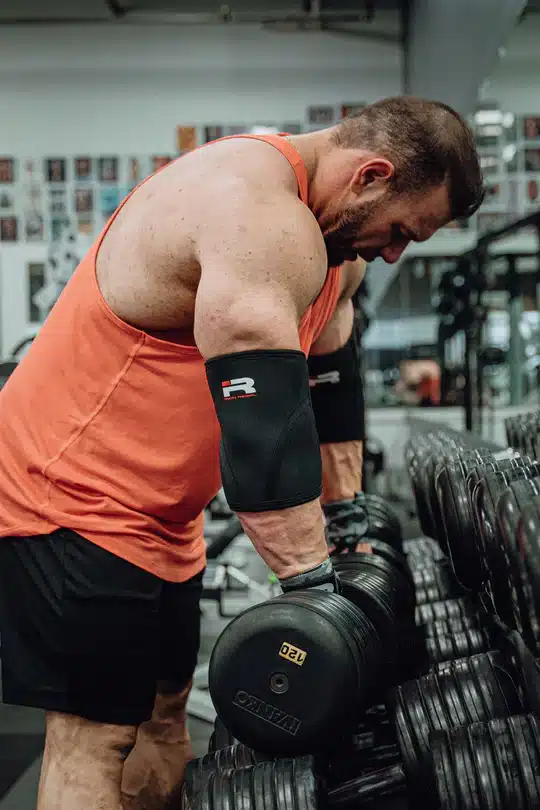Protein and protein needs is the foundation for a healthy and well-functioning body, but how much do we actually need daily? In this blog post, we will delve into the critical roles of protein in the body and explore why it’s crucial to ensure that you’re getting the right amount of this essential nutrient.
Proteins, the building blocks of the body, play a critical role in nearly all biological processes. They contribute to muscle building, tissue repair, the production of enzymes and hormones, and are vital for the immune system’s function. In other words, without sufficient protein, our bodies cannot maintain strong muscles, heal properly after injuries, or sustain a healthy metabolism.
But how do you know if you’re getting enough? And is it possible to have too much? We’ll guide you through calculating your individual protein needs based on your body type, activity level, and health goals. We’ll also discuss the consequences of both too low and too high protein intake and give you tips on how to ensure your diet contains an appropriate amount of this crucial nutrient.
Whether you’re an avid athlete, trying to lose weight, or simply aiming to maintain a healthy lifestyle, understanding the role of protein in your body and diet is essential.

Protein is more than just a part of your daily diet; it’s the foundation that keeps your body running. From building muscles to repairing tissues, protein plays a crucial role in nearly all of the body’s functions. But what is protein, exactly, and why is it so important for us? Let’s dive into the world of protein and explore the different types and their sources in the diet.
Protein is a macronutrient, which means the body needs it in large amounts to function correctly. It consists of long chains of amino acids, which are the basic building blocks of the body. There are 20 different amino acids, and the sequence of these amino acids determines the protein’s shape and function. Proteins perform a wide range of functions in the body, including:
Without enough protein, the body cannot maintain its muscles, heal after injuries, or maintain a healthy metabolism. Protein is also essential for growth and development in childhood, adolescence, and during pregnancy.
Proteins can be classified into two main categories based on their sources: animal and plant-based proteins.
These proteins are considered “complete proteins” because they contain all the essential amino acids the body cannot produce on its own. The most common sources of animal proteins include:
Plant-based proteins are often considered “incomplete” proteins because they usually lack one or more of the essential amino acids. However, it’s possible to obtain all the necessary amino acids through a well-planned plant-based diet. Sources of plant-based proteins include:
For those following a plant-based diet, combining different protein sources is necessary to ensure they get all the essential amino acids. This can be achieved by eating a variety of plant-based foods throughout the day.
Protein is a crucial component of a healthy diet. It supports countless body functions and is essential for muscle building, tissue healing, and much more. By understanding the different types of protein and their sources, you can ensure your diet is balanced and supports your body’s needs. Whether you choose animal or plant-based proteins, it’s important to aim for variety and balance in your diet to achieve optimal health.
Protein is a vital part of a healthy diet, but do you know how much you actually need? The daily requirement for protein can vary significantly depending on several factors, including age, gender, and activity level.
The general guidelines suggest that adults should consume 0.8 grams of protein per kilogram of body weight daily. This means a person weighing 70 kg should aim to consume 56 grams of protein per day. However, these recommendations are just a starting point and should be adjusted based on various lifestyle factors.
Although the basic recommendations apply to both men and women, men’s generally higher muscle mass and larger body weight may mean they need absolutely more protein than women to maintain muscle mass and health.
Meeting your daily protein needs requires a conscious effort to include protein-rich foods in your diet. This can include:
It’s important to remember that while protein is essential for good health, balance and variety in the diet are equally important. In addition to focusing on protein intake, ensure to include a wide variety of fruits, vegetables, whole grains, and healthy fats to achieve a nutrient-rich diet that supports all aspects of your health. By tailoring your protein intake to your individual needs, you can ensure your body has the necessary resources to function optimally every day.

In a world where fitness and health are central, we at Only-Approved.dk stand out. Our webshop is a portal to a world of dedication, where each product is handpicked to support your journey towards becoming the best version of yourself.
At Only-Approved.dk, we understand the passion for fitness and the pursuit of improvement. We know that the right nutrition and the correct equipment can make a world of difference in your training. Therefore, we offer a carefully selected range of fitness supplements and equipment designed to meet the needs of the modern athlete – from the beginning gym-goer to the dedicated bodybuilder.
Our webshop is filled with high-quality supplements that can boost your performance and help you achieve your goals faster. From protein powders that support muscle building and repair to energizing pre-workouts that ensure you get the most out of every training session. We also offer a wide range of vitamins and minerals, essential for keeping your body in top shape and ensuring you’re always ready to perform your best.
But Only-Approved.com is more than just supplements. We know that equipment also plays a critical role in your fitness journey. Therefore, you’ll find everything from training gloves and belts to yoga mats and weightlifting equipment with us. Each product is chosen for its quality and ability to enhance your training, so you can feel confident and supported, no matter your fitness level.
Understanding your personal protein needs is crucial for maintaining a healthy body and achieving your fitness goals. Protein requirements can vary significantly from person to person based on several factors, including age, gender, weight, height, and especially activity level.
The most basic formula for estimating your protein needs is to multiply your weight in kilograms by a specific number, representing grams of protein per kilogram of body weight. The general recommendation for an average adult is 0.8 grams per kilogram of body weight, but this number increases if you are particularly active or seeking to build muscle mass.
Find your weight in kilograms: If you know your weight in pounds, you can divide it by 2.2 to convert to kilograms.
Determine your activity level: Choose the factor that best matches your daily activity level or goal. For example:
Calculate your daily protein needs: Multiply your weight in kilograms by the chosen number based on your activity level.
Let’s look at some examples to illustrate how different people with different needs and lifestyles can calculate their protein needs.
Understanding and meeting your personal protein needs are crucial for achieving optimal health and promoting your fitness goals. By following these simple steps and adjusting your intake according to your activity level, you can ensure that your body receives the support it needs to repair, maintain, and build muscle tissue. Remember, these calculations are indicative, and individual needs can vary. Listen to your body and adjust as needed, and consider consulting a nutrition expert or dietitian for personalized guidance.

Navigating the complex world of protein can seem overwhelming. With so many variables like age, gender, activity level, and personal goals, it can be hard to determine exactly how much protein you need to support your body’s functions optimally. But fear not – with the right tools and knowledge, this task can become much more manageable.
Only Approved offers not only a wide array of high-quality protein products but also the guidance and support you need to make the best nutritional choices for your lifestyle. Our goal is to make it easy for you to understand and meet your protein needs, no matter where you are on your fitness journey.
Remember, protein needs are deeply personal. What works for an elite athlete may be too much for someone with a more sedentary lifestyle. By using the guideline calculations we’ve outlined, you can get a better understanding of where to start. But it doesn’t stop there. Listen to your body and be mindful of how it responds to changes in your protein intake. Adjustments may be necessary, and that’s perfectly okay.
Only Approved is here to support you with quality products that can help you reach your goals, whether you’re looking to build muscle mass, improve your performance, or simply live a healthier life. Our selection of protein products is carefully chosen to ensure you get the best of the best, from whey protein to plant-based alternatives and everything in between.
© 2024 Only Approved – Designed by Aveo web&marketing
Socials
Socials